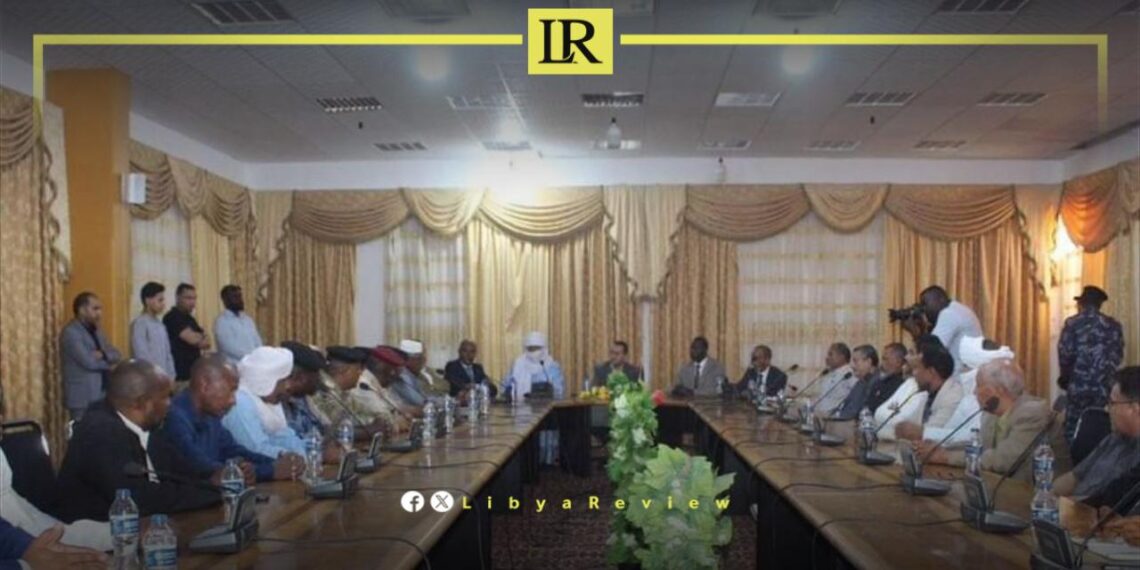The Minister of Foreign Affairs and International Cooperation, Abdulhadi Al-Hwaij, along with his accompanying delegation, conducted a working visit to the city of Ghat and the “Essien” land border crossing in the Al Barkat municipality. This visit aims to enhance consular services and expand the scope of the Ministry of Foreign Affairs’ operations.
The visit’s primary goal was to inaugurate a consular affairs office in the city. The delegation was welcomed by the mayors of Ghat, Al Barkat, and Tahala, as well as local elders, dignitaries, and leaders of military and security agencies.
During the visit, Minister Al-Hwaij held a meeting with the mayors, city elders, and representatives of various local entities and institutions. The meeting focused on reviewing and discussing some of the challenges facing the city, with the aim of finding effective solutions and supporting local development efforts.
Libya has been in chaos since a NATO-backed uprising toppled longtime leader Muammar Gaddafi in 2011. The county has for years been split between rival administrations.
Libya’s economy, heavily reliant on oil, has suffered due to the ongoing conflict. The instability has led to fluctuations in oil production and prices, impacting the global oil market and Libya’s economy.
The conflict has led to a significant humanitarian crisis in Libya, with thousands of people killed, and many more displaced. Migrants and refugees using Libya as a transit point to Europe have also faced dire conditions.
The planned elections for December 2021 were delayed due to disagreements over election laws and the eligibility of certain candidates. This delay has raised concerns about the feasibility of a peaceful political transition.
Despite the ceasefire, security remains a significant concern with sporadic fighting and the presence of mercenaries and foreign fighters. The unification of the military and the removal of foreign forces are crucial challenges.


